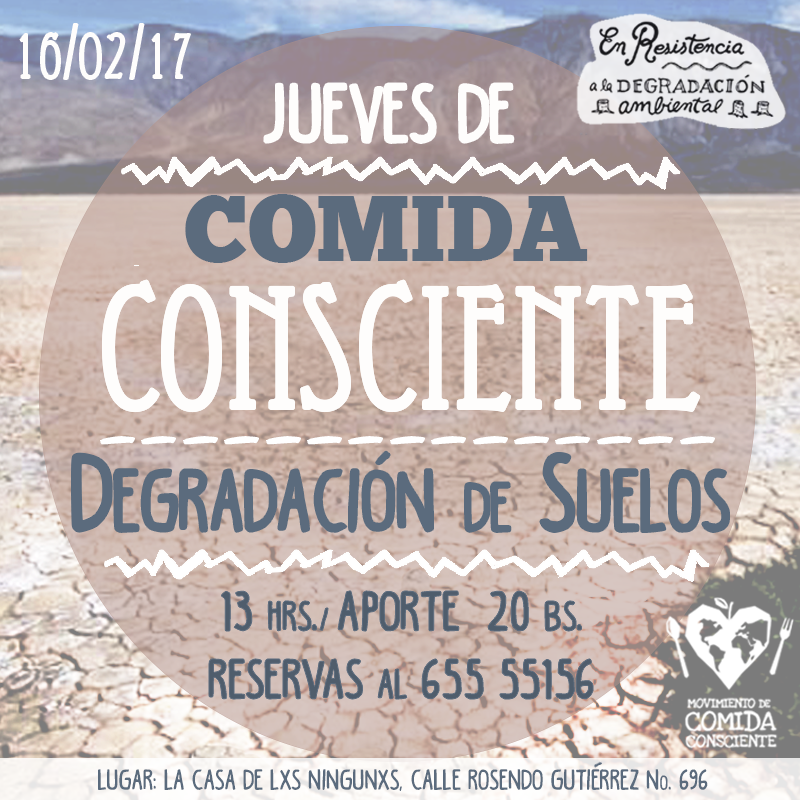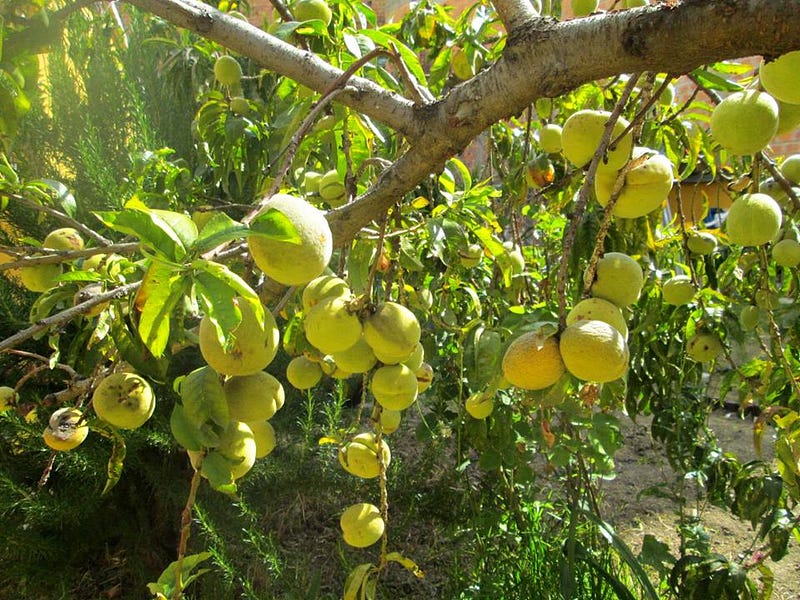La Casa de los Ningunos is an experimental community in the Bolivian capital city of La Paz, 12,000 feet up in the Andes Mountains. In a recent piece on the Casa, Sian Cowman explained the inspiration for the name, which also elegantly describes the Casa’s mission, “…Los Ningunos comes from the poem Los Nadies by Eduardo Galeano — Los Ningunos are the have-nots, those seen as ‘nobodies’ by society at large. This community is re-imagining economic and social relations to help build a world where the ‘nobodies’ are no longer marginalized.”
They are doing so by attempting to create a community in which relationships are not driven by profit, and peoples’ basic needs and more can be fulfilled by collective labor and exchange — Cowman calls it, “people-driven alternatives to a money-driven society.” They consider building such a community to be a subversive act, insofar as it allows power and money to be taken away from the profit-driven global economy.

El Alto Market, La Paz by Cliff Hellis (CC BY-NC-ND 2.0)
Like many others, the foundational members of the community at the Casa — most of them local activists who have worked in the fields of environmental and social justice — identify food as being perhaps the most powerful commodity they can reclaim. They offer weekly Comida Consciente(Conscious Food) lunches — locally-sourced, organic, vegetarian meals, made collectively and consumed by up to eighty members of the community surrounding the Casa. Many dishes feature sabores ancestrales — (ancestral flavors) — and “forgotten fruits” (rare and traditional fruits, vegetables and grains) which the community learns together to prepare and enjoy. Over lunch, they discuss things like climate change and the importance of sustainable food systems.

Poster from a Comida Consiente event at La Casa de Los Ningunos
Other projects at the Casa include a garden, along with weekly community gardening sessions called Manos a la Tierra (Hands to the Earth); a gratiferia (a “free market — bring what you want, take what you want”); sustainability workshops, documentary screenings, theater rehearsals, yoga and dance classes, and more. Cowman explains, “These events draw in diverse attendees for diverse purposes, but a common thread between them all is the welcome people receive in the Casa, a welcome to be part of the community.”
The rest of the work at the Casa is focused on finding alternative ways of shaping economic relations, mostly related to ideas about reciprocity and gift economies. Though small fees are charged for certain workshops, and occasionally for catering Comida Consciente meals, earnings go right back into the community. The few permanent members of the community actually earn the equivalent of Bolivia’s minimum wage (around $240) every month; it isn’t much, but it’s more than enough to survive with the additional support the community provides, and it helps to reinforce the idea the everyone’s work should be valued, no matter what they do.

Garden at La Casa de Los Ningunos
Indigenous communities in Bolivia have traditionally operated on the concept of vivir bien, “living well” (you can learn more about this philosophy of community well-being here). Cowman explains, “Land is traditionally held collectively and the cultivation of crops is shared.” As they work toward a better future, La Casa de los Ningunos is really just a returning to this past, bringing the concept of vivir bien into a modern context where it becomes a subversive act and, for community members, a source of happiness.”
To learn more, read Sian Cowman’s original piece on resilience.org: How One Urban Activist Community in Bolivia Thrives on Abundance for Everybody.